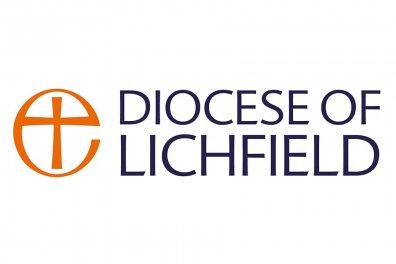There's a phrase that the Church of England often uses to describe it's structures: that it is 'episcopally led and synodically governed'.
This looks to bishops to provide leadership; while the governance of the church's various parts - nationally, as dioceses and as deanerys is done by synods - bodies comprising three houses - for representative bishops, other clergy, and laity.
Download information here on Electoral Roll revision in 2025 (word document)
General Synod
The General Synod is the national assembly of the Church of England. It came into being in 1970 under the Synodical Government Measure 1969, replacing an earlier body known as the Church Assembly. It is made up of clergy and laity from every Diocese, and could be described as the 'parliament' of the Church of England.
The next elections to General Synod will take place in 2026.
Our current General Synod representatives are: (click to email)
Clergy: |
Laity: |
All General Synod representatives are open to hearing your views or answering specific questions about their roles.
For more information on General Synod, please click here.
Diocesan Synod
The Diocesan Synod brings together clergy and lay members from all of the Diocese's 28 Deaneries. More locally, each deanery has a Deanery Synod, which is made up of clergy from the deanery and lay representatives from every parish.
Role/Terms of Reference of Diocesan Synod (common membership with the Diocesan Board of Finance):
- To consider matters concerning the Church of England and to make provision for such matters in relation to their diocese, and to consider and express their opinion on any other matters of religious or public interest;
- To advise the bishop on any matters on which he/she may consult the synod (It shall be the duty of the bishop to consult with the Diocesan Synod on matters of general concern and importance to the diocese)
- To consider and express their opinion on any matters referred to them by the General Synod, and in particular to approve or disapprove provisions referred to them by the General Synod under Article 8 of the Constitution
- To consider proposals for the annual budget for the diocese and to approve or disapprove them;
- To consider the annual accounts of the diocesan board of finance of the diocese.
The next triennial elections to Diocesan Synod will take place in 2027. The elections are carried out by Deanery Synods, and any Clerk in Holy Orders who is a voting member of a deanery synod, and any lay person who is a member of a church electoral roll may stand as a candidate. Members of deanery synods are the electors.
Diocesan Synod meets three times per year, individuals are encouraged to submit ideas for agenda items.
Click here for the operating rules of Diocesan Synod
and here for a primer on the constitution and workings of Diocesan Synod.
Dates of meetings in 2023 and 2024 are:
| Date/Time | Venue | Papers | Post-meeting summary |
|---|---|---|---|
| Saturday 18th March 2023, 9.30 am | Telford Minster | DS March 2023 | Spring 2023 meeting summary |
| Wednesday 28th June 2023, 6.30 pm | St John the Baptist, Barlaston | DS June 2023 | Summer 2023 meeting summary |
| Saturday 18th November 2023, 9.30 am | Catalyst Building, Leek Road Campus, Stoke | DS November 2023 | |
| Saturday 16th March 2024, 9.30 am | Telford Minster | Spring 2024 meeting summary | |
| Tuesday 2nd July 2024, 6.30 pm | St John the Baptist, Barlaston | DS July 2024 | Summer 2024 meeting summary |
| Saturday 30th November 2024, 9.30 am | Aldridge Parish Centre | DS November 2024 | |
| Saturday 15th March 2025, 9.30 am |
Telford Minster |
DS March 2025 | Spring 2025 meeting summary |
| Tuesday 1st July 2025, 6.30 pm | Aldridge Church Centre | DS July 2025 | Summer 2025 meeting summary |
| Saturday 1st November 2025, 9.30 am | Catalyst Building, Leek Road Campus, Stoke | DS November 2025 | Autumn 2025 meeting summary |
| Saturday 14th March 2026, 9.30 am | Aldridge Church Centre | ||
| Tuesday 30th June 2026, 6.30 pm | |||
| Saturday 22nd November 2026 |
Deanery Synods
Elections to deanery synods are triennial and are carried out at each APCM in an election year. They are taking place in 2023, 2026 and so on. The representation is based on electoral roll numbers and is availalble here.
The rules (Standing Orders) for the operation of Deanery Synods are available here.
Lichfield Diocesan Board of Finance (LDBF)
The Lichfield Diocesan Board of Finance was established under the Diocesan Boards of Finance Measure 1925 and registered as a charity with the Charity Commission. It is a charitable company, limited by guarantee, with members of the Bishops Council as Directors. It is the financial and legal executive of the Diocesan Synod and is responsible for financing its activities. It has a common membership with Diocesan Synod. The LDBF through its Finance and Central Services Committee, Bishops Council and Diocesan Synod agrees an annual expenditure budget. Its roles and responsibilities are the same as Diocesan Synods. The Council or Executive Committee (which is the same as Bishops Council of Diocesan Synod) manages the affairs of the Board, whose members are defined in the Memorandum and Articles of Association.
For full information on the goverance structure and all committees, see the Governance Handbook here
